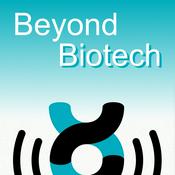Today, we're joined by Professor Matthew Wood, a leading figure in neuroscience and RNA-based therapeutics. He is Professor of Neuroscience at the University of Oxford, Deputy Head of the Medical Sciences Division, and Director of both the MDUK Oxford Neuromuscular Centre and the Oxford-Harrington Rare Disease Centre, a groundbreaking partnership between the University of Oxford and Harrington Discovery Institute dedicated to accelerating therapies for rare genetic diseases affecting millions worldwide.
In today’s episode we discuss his vision for making antisense oligonucleotides (or ASOs) and gene editing more modular, more scalable, and faster by collaborating with regulators, scientists, and patient groups to bring hope to those with rare neuromuscular and genetic conditions.
With rare disease day coming up just next week, I hope you enjoy the insights that Professor Wood shares on the future of the fight against rare disease.
01:23 – Meet Matthew Wood
07:26 – The Oxford-Harrington Rare Disease Centre
10:33 – Collaborations, philanthropy, and industry partnerships
13:55 – Key challenges in rare disease therapy development
20:00 – Modular and scalable platforms for ASOs
28:08 – Scaling gene editing like CRISPR for rare diseases
32:38 – Role of AI and computational tools in acceleration
37:28 – Future breakthroughs in rare disease treatments
44:07 – Advice for new researchers in the field
Interested in being a sponsor of an episode of our podcast? Discover how you can get involved here!
Stay updated by subscribing to our newsletter
To dive deeper into the topic:
Prader Willi syndrome: five much-anticipated therapies poised for approval
First-ever approval for Barth Syndrome treatment: what does this mean for ultra-rare disease therapeutics?
When rare diseases are not so rare after all: A closer look at where and why this happens



